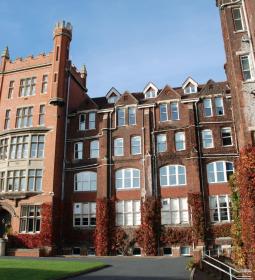Due to rapid globalization, studying abroad is becoming not just a modern trend, but an important step towards expanding horizons and improving the quality of education. Annually, the number of students who are intrested in complementing international experience to their academic portfolio, is increasing. Also the diverse opportunities for studying makes choosing the right direction and understanding the admission process extremely important.
Foreign universities open up a wide range of opportunities for students to gain unique experience and deepen their knowledge. An important step concerns the right choice of educational institution and program. From prestigious universities in the UK and the US to growing educational hubs in Asia and Australia, each country offers its own unique opportunities for students.

Much attention should be paid to the admission process, requiring attentiveness and preparation. This stage stipulates learning the requirements, preparing the necessary documents, passing entrance exams and interviews. It is crucial to know exactly what steps you need to take depending on the chosen country and university.
In addition, the financial issue plays an important role: the cost of studying and living abroad can range significantly. Foreign students should be prepared for additional expenses.
Studying abroad opens up new horizons, allowing you to deepen your knowledge and get acquainted with different cultures. Also the right preparation will make this experience exciting and rewarding.
What opportunities exist today for admission to a foreign university?

International education provides diverse opportunities for students from all over the world. Universities offer programs at all levels, from undergraduate to graduate school. Usually educational programs are tailored to the demands of the global labor market.
In recent years, there has been an increasing focus on interdisciplinary research, bringing together multiple fields of expertise to solve complex global problems. This trend is observed in programs concerning sustainable development, international relations, and healthcare, reflecting changing priorities for both students and institutions.
What countries are in demand abroad in 2024?

Some countries invariably attract international students with their educational opportunities – the USA, UK, Canada, Australia and Germany are the most popular destinations.
United States
In the USA many of the world's leading universities, including Harvard, MIT, and Stanford, the United States, are located, offering a wide range of programs and research opportunities.
United Kingdom
The UK has gained popularity due to its prestigious universities, among which are Oxford and Cambridge. Also rich academic tradition is the main feature. Student life and a global alumni network contribute to its attraction among applicants.
Canada
Known for its welcoming atmosphere and high quality of life, Canada offers excellent opportunities to study. It is worth to mention the University of Toronto and the University of British Columbia.
Australia
Australia has gained popularity due to its high academic standards, comfortable lifestyle, and professional support for international students. The University of Sydney and the University of Melbourne are the most popular institutions among the foreign students.
Germany
Germany is becoming increasingly popular, as German higher educational institutions provide high quality education at relatively low price. Many universities, such as Munich and Heidelberg, offer programs in English, which is convenient for those who do not plan to study and make career in German.
What are the most popular countries for higher education in 2024?
Selecting a university abroad for obtaining higher education stipulates consideration of several factors: the country's academic reputation, job opportunities for graduates, and cultural appeal. Below there are the countries with the most universities in the QS World University Rankings Top 500, which is considered one of the most reputable in the world.
United States
The United States is the educational center of the world. In 2024, the Massachusetts Institute of Technology (MIT) was recognized as the best university in the world by QS Top Universities 2024, and Harvard, Stanford, and the University of California, Berkeley, were in the top ten. It's no wonder that the U.S. attracts more than 1 million international students a year – with more than 4,000 institutions to choose from, the opportunities to study in the country are virtually limitless.
United Kingdom
The UK has been the center of world education for almost 1000 years, and its oldest educational institution, the University of Oxford, was founded in 1096. Today, Oxford and Cambridge are ranked second and third in the QS Top Universities rankings, while Imperial College and University College London are in the top ten. With a choice of 160 universities, the UK provides excellent conditions for international students: London is more attractive to those who want to work in finance and business, while Manchester and Edinburgh are interested in graduates wishing to make a career in the media.
Germany
Since the founding of the University of Heidelberg in 1386, Germany has a status of a leader in education and today graduates some of the best specialists in STEM disciplines. The country has the highest proportion of graduates in the OECD and attracts the attention of outstanding faculty in engineering, electronics, and architecture. Student life in Germany can be challenging, but it's ideal for those looking for an intense academic experience, and students are rewarded with diplomas from among the best in the EU and the world.
Australia
Australia is investing significantly in higher education, with a goal of attracting foreign students and creating an enabling environment for them. The country's main universities are concentrated in large cities, and Melbourne is especially popular with international students. Australian universities offer a wide range of specialties, including arts, medicine and business, and provide plenty of opportunities for further employment in their friendly, relaxed and sunny region.
Canada
Canada emphasizes on higher education, as demonstrated by the recent $1.4 billion grant for research initiatives. Although studying here can be expensive, more than 100 universities and over 15,000 educational courses provide excellent opportunities to realize any academic ambitions.
Stages of preparation for admission to a foreign university

The admission process for international students usually involves several key steps:
- Choosing a university: Research universities and programs, which comply with your goals, consider program content, rankings, location, and support for foreign students.
- Preparation of documents: Academic transcripts, letters of recommendation, a statement of purpose, and test scores (e.g., TOEFL or IELTS) will be required. Some programs may ask for a portfolio or an interview.
- Applying for admission and obtaining a student visa. Follow the instructions to apply. After enrollment, apply for a student visa by providing confirmation of admission, financial information. The results of a medical examination may be required.
- Finances and accommodation: Estimate tuition, accommodation, and travel costs, and adjust them to the budget available to you.
What documents are required for admission to a university abroad?

Preparation for studying abroad requires careful collection of documents for successful admission and obtaining a visa. The main documents required for submission include:
- Application: A form with your personal details, academic history, and program preferences.
- Resume/CV: A description of your academic and extracurricular achievements, work experience and qualifications.
- Academic diplomas and certificates: everything that will prove your academic performance.
- Letter of recommendation: letters from teachers, employers, or mentors that can describe your skills and accomplishments.
- Statement of Purpose or Personal Essay: A document in which you explain your motivation and goals related to choosing a program and university.
- Test scores: For example, TOEFL or IELTS for assessing language skills and SAT or ACT for standardized tests if required.
- Confirmation of financial support: Documents that confirm your ability to cover tuition and living expenses, such as bank statements or scholarship letters.
- Portfolio: Creative programs like Art or Design will require a portfolio of your work.
Each document helps the university assess your qualifications and readiness to study, so you need to collect a package of documents carefully.
The cost of education in universities in different countries

The cost of studying abroad ranges, which is stipulated by the region and country. Experts recommend to take into account other expenses in addition to the main tuition fees, for example, the cost of textbooks and accommodation.
Usually, the US and UK are featured by higher tuition and expenses for accommodation, while countries in Eastern Europe, South America, and Asia offer less expensive options. Below there is the approximate annual cost of undergraduate tuition:
| United States | 20 000-50 000$ |
| Canada | 15 000-40 000$ |
| South America | 1000-15 000$ |
| United Kingdom | 10 000-40 000$ |
| China | 4000-10 000$ |
| Australia | 15 000-45 000$ |
In which countries are universities the cheapest?

Many countries offer affordable university tuition fees, including countries in Europe, Asia, and other regions.
Europe
In continental European countries such as France, Germany, and Spain, the tuition fee is featured by its affordability for foreign students. in Germany higher education is free of charge, offering many scholarships and student jobs. France has adopted fixed tuition fees at all public universities. Also high quality education can be obtained in Norway, Denmark, Finland, Sweden, Ireland, the Netherlands, Switzerland, Belgium, and Italy.
Asia
Vietnam is one of the cheapest countries to study abroad in Asia, especially in Ho Chi Minh City, the largest city. Malaysia is also popular among foreign students due to its low cost of living: for example, renting a shared apartment will amount to $100-250 per month.
Other regions
Taiwan offers studying at affordable public colleges, in which tuition fees start at around 1000€ per academic year. Brazil is another country with affordable educational options, as most federal and state institutions do not charge students.
What do you need to think about before starting the process of applying to a university abroad?

Before applying to a foreign university, it is important to consider a few key factors to avoid unforeseen problems.
- Choosing a program and university. Research universities and programs, complying with your academic and career goals, assess the curriculum, faculty, and reputation of the university, and take into account the culture and climate of the city, as they will affect your overall experience.
- Financial planning: Determine the costs of tuition, living, textbooks, and life, research available scholarships, grants, and financial aid, and budget carefully to manage your money wisely abroad.
- Visa and immigration requirements. Find out about the student visa process in your chosen country, make sure you meet all the requirements, and apply well in advance to avoid delays.
- Accommodation. Choose between on-campus living, private apartments or shared accommodation, based on the common market, your budget and your wishes for comfort.
- Linguistic and cultural adaptation. Assess your language skills and consider attending a language course if necessary.
With these points in mind, you'll be able to go through the application process more smoothly and prepare to study abroad more effectively.
Findings
Studying abroad is a great opportunity for personal and academic growth, as foreign students are provided with diverse studying directions and programmes. When current opportunities, popular directions, and the admission process are learnt, prospective foreign students can make informed decisions and carefully prepare documents for submission. The cost factors should be considered, also available directions of studying should be learnt - all these contribute to make the dream of studying abroad a reality. Through careful planning and research, students can begin their educational journey, which leads to broaden their perspectives and enrich their academic and professional lives.









